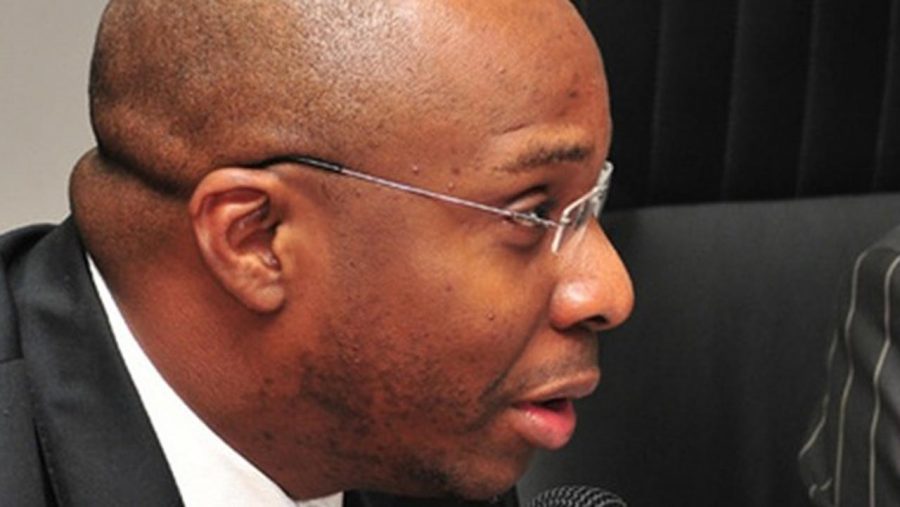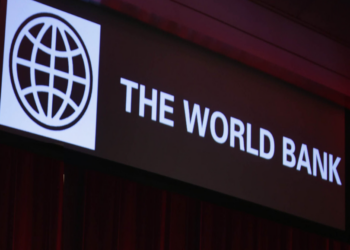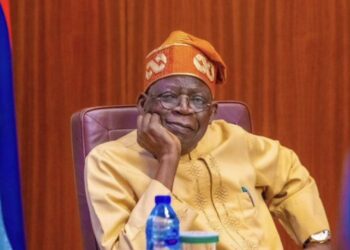Subsistence agriculture alone may never be able to sustain any household in Nigeria. This is according to Nigeria’s Statistician-General and CEO of the National Bureau of Statistics (NBS), Dr Yemi Kale, who spoke during the Rauf Aregbesola annual colloquium earlier today. The event had the theme — Government Unusual: Innovative Economic Solutions to Unlock Mass Prosperity.
Using insights from the 2019 National Living Standards Survey, Dr Kale explained that households that are solely engaged in subsistence agriculture appear to have the highest levels of poverty. This set of families are followed by households with more than twenty members.
“This doesn’t mean agriculture is a bad thing. It simply means the way we do agriculture in Nigeria has to be improved so that it does not become synonymous with poverty or we have to find other sources of income for farmers to supplement their standard of living,” he said.
Speaking further, Dr Kale explained that the living standards survey, which was conducted in collaboration with the World Bank, started in late 2018 and ended in 2019. The survey utilized data from all states in Nigeria except Borno whose data was not considered credible enough given the security situation in the state. Kale said:
“We established the poverty line at N137,430 and any individual or family that spends below this on food in a year will be classified below the poverty line.”
Given this yardstick, the survey established that at least 22.9 million Nigerians are living in poverty, with the bulk of this number coming from the rural areas and states with low indices on education, social welfare initiatives, employment, and income equality.
Formalising the informal sector
The informal sector comprises people who earn enough to keep above the poverty line on a daily basis, but not enough to sustain them in the event of a lockdown, as was seen recently in some states during the April COVID-19 lockdown. This is a problem that can only be solved if the informal sector becomes formalised, Kale said. In other words, formalizing this sector will help more daily wage earners stay above the poverty line. He made reference to the recent lockdown which incapacitated lots of daily wage earners in states such as Lagos.
Nigeria’s poor versus other African countries
Making a comparison, Yale also noted that Nigeria’s poor are poorer than their counterparts in South Africa despite the fact that the nominal size of Nigeria’s economy is much larger.
He attributed this to findings which showed that Nigerians spend three times more on foods and consumables than all other items put together, as against countries like South Africa and Egypt where less is spent on food items.
“Nigerian remains Africa’s largest economy, but per capita income is rather low for a country of this size, and the level of poverty presents a major development challenge” he noted.
Reducing unemployment – the fastest way out
According to Kale, the fastest way out of poverty is to reduce unemployment, as people will naturally have more to spend on their needs when they are employed. To support his point, Kalu cited five Nigerian states with the least poor people in comparison to the other states —Lagos, Delta, Ogun, Osun, and Oyo. Each of these states has fewer unemployment levels compared to the states with higher poverty rates such as Sokoto, Taraba, Jigawa, Ebonyi, and Adamawa states.
Other indicators which show similar trends across the states are education, and ease of doing business. The poverty rates are almost always higher where education is poor.
Increasing local production
Also making a presentation during the colloquium, Dr Joe Abah called for a review of the 1978 land use act which he said is limiting in its provisions. He also stressed that Nigeria needs to improve access to capital, raw materials, lands, and technological innovations so that production capacity can increase significantly.
“All of the richer countries simply produce more, and they produce more things that people want to buy and want to consume. It could be products or services. the higher your production capacity, the richer you are. if you cannot produce, you cannot develop your education or your health sector.”
According to Abah, the cost of governance cannot be reduced without adopting some of the suggestions of the Oronsaye report, and restructuring the system for productivity. He said that “there is also a need to link budget and funding to productivity so that public sectors begin to understand that the more funding they require, the more they are expected to produce as well.”
He also suggested that states should start focusing on their competitive advantage and use same to improve general productivity in their state.
Other panelists at the colloquium include Mallam Nasir El-Rufai, Governor, Kaduna State, Sen. Abubakar Bagudu, Governor, Kebbi State, Mrs. Hajara Adeola, CEO, Lotus Capital Limited, Mr. Bismarck Rewane, CEO, Financial Derivatives Limited, Dr. Joe Abah, Country Director, DAI, Dr. Yemi Cardoso, Chairman, Citibank Nigeria, with Boason Omofaye as the moderator.
You may watch the colloquium by clicking here.


















